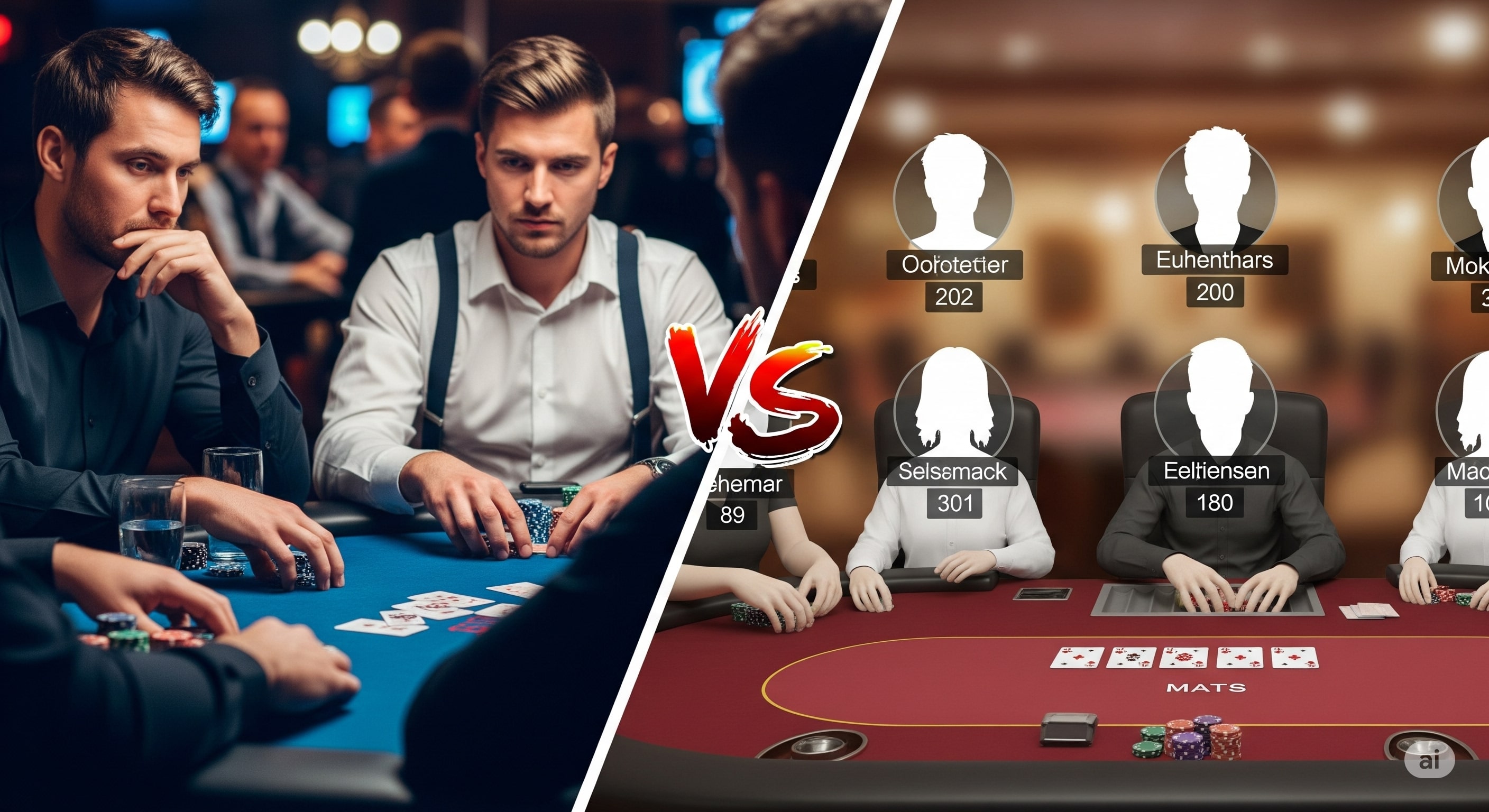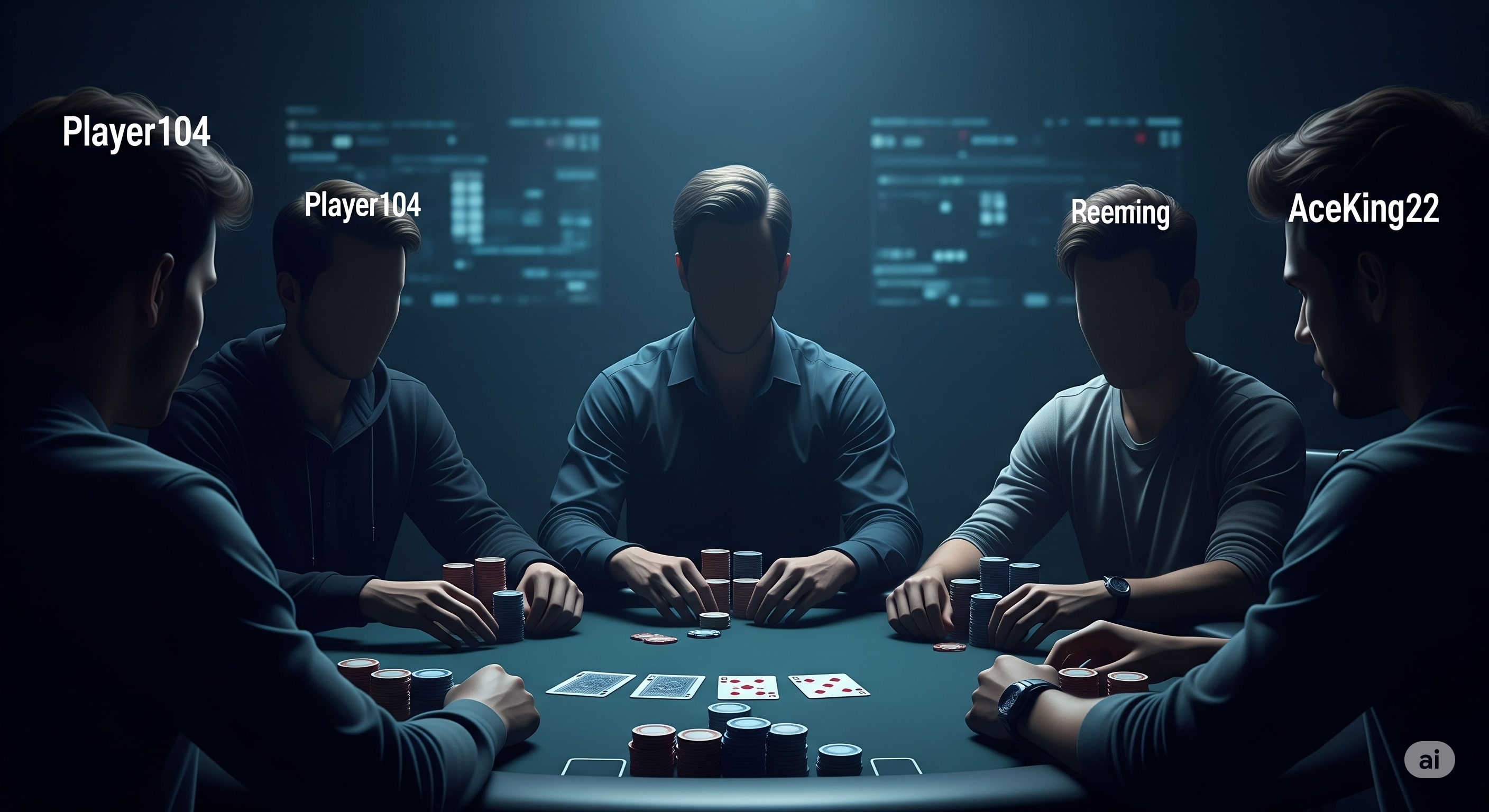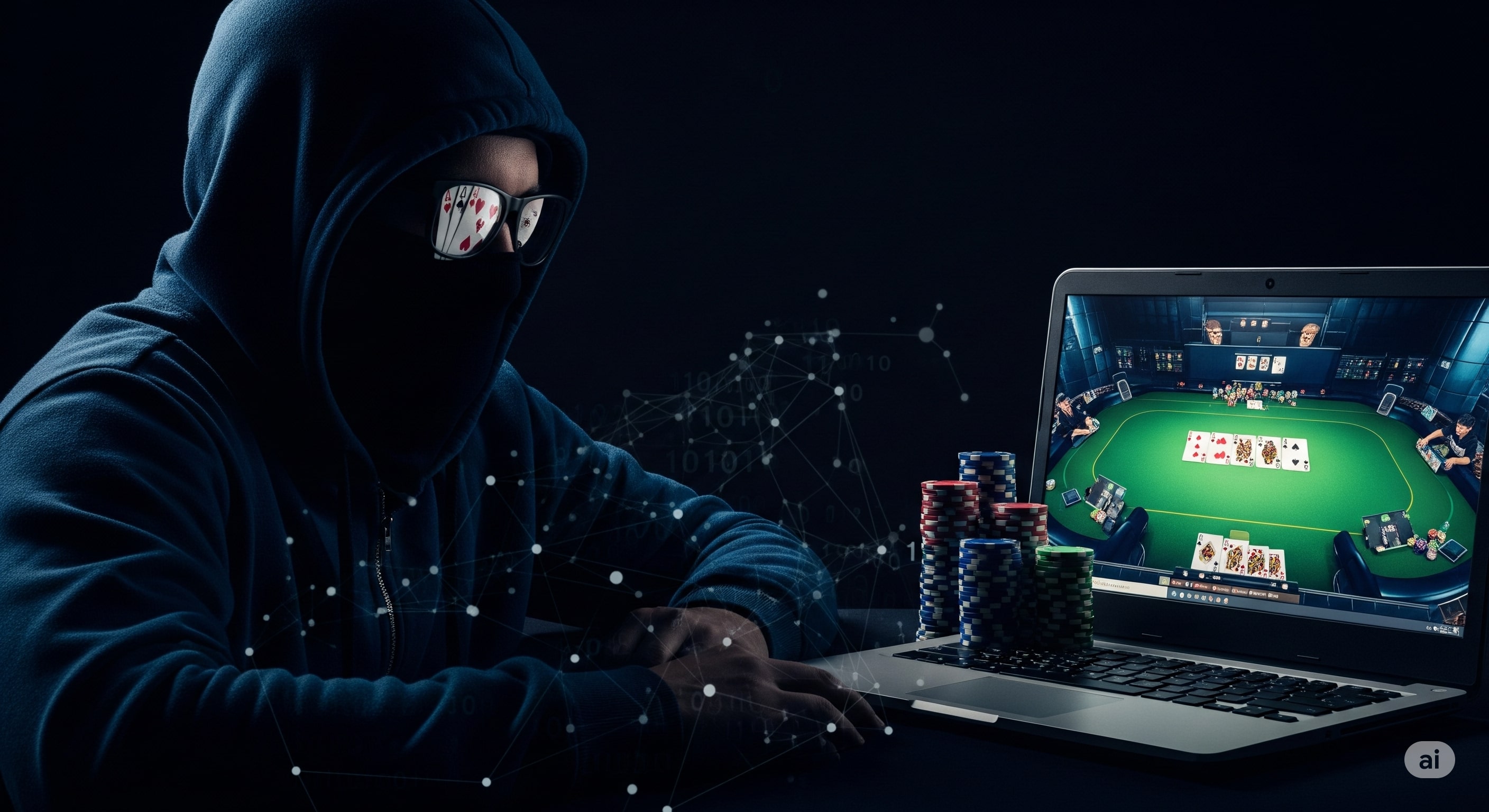Physical poker games deliver context. They provide years of observations, familiar playing styles, and historical weaknesses. Exploitative strategies thrive. Online anonymity demolishes this foundation. Bluff frequency adjustments based on opponents' known tendencies crumble without cumulative player behavior records.
The Anonymity Factor
Traditional physical cues evaporate when faces vanish and tells disappear into pixels. Players accustomed to reading trembling hands, nervous glances, or overconfident smirks lose these indicators entirely when playing poker online. Bluff detection relies on timing tells and bet-size patterns instead of detecting a twitch or hesitation at the table.
Online anonymity strips away visual assessments and forces reliance on minimal cues like timing delays or betting rhythms. Bluffing frequency tilts unpredictably without direct human interaction in virtual rooms as players gamble on faceless hunches instead of tangible, readable reactions.
Exploiting the Unexploitable
Poker analytics software that once revealed bluff percentages or check-raise frequencies become useless artifacts. Opponent stack size no longer indicates skill or behavioral tendencies in anonymous quick-fold games. A short-stacked player might be brilliant. A chip-heavy competitor may be a reckless amateur. Bluff targets blur into indistinguishable silhouette figures. This eliminates reliable exploitative behavior.
Professional poker players openly dismiss anonymous quick-play tables because information scarcity wipes away profitable exploitation methods. Predictable data-driven strategies vanish and leave expert bluffers blindfolded and guessing. The professional poker community says that only one percent consistently succeed in these anonymous conditions.

Avatar Differences and Gender Irrelevance
Preconceived biases influence physical poker encounters. Players habitually bluff more aggressively on opponents perceived as weak due to age, nationality, or gender biases. Online anonymity abruptly eradicates these biases and forces interactions predicated on immediate play dynamics.
Players can neither safely over-bluff nor confidently exploit opponents relying on outdated biases without stereotypical tendencies guiding bluff decision-making. Anonymity imposes a state of forced neutrality on bluff strategies and compresses bluff frequency ranges into uncertain uniformity.
Bluff Frequencies Without Guidance
Bluff success calculations typically provide confidence. Traditional poker wisdom dictates bluffs around a tenth of total betting activity to maintain unpredictability. Such benchmarks collapse under anonymous online play. Bluffing frequencies morph into vague conjectures without historical data. Bluff attempts slide toward more random, uncertain approaches.
Anonymous online poker denies players key data, such as previous hand outcomes, HUD displays revealing precise bluff statistics, and cumulative performance evaluations. Bluff decisions become products of immediate circumstances and aren't grounded in proven mathematical bluffing models. Effective bluff ranges become unpredictable without explicit guidelines.
Behavioral Blindness in the Online Arena
Evolutionarily ingrained gender-influenced behaviors dominate traditional competitive environments in poker. Male players statistically bluff more frequently as an assertion of dominance. While female players generally bluff selectively amid risk-aversion calculations. These evolutionary trends vanish behind screens.
Online anonymity completely disrupts evolutionary behaviors established across millennia and removes gender assumptions from bluffing calculations. Studies do exist identifying increased bluff aggression online against avatars perceived as female. Yet fully anonymous platforms with no visible avatar distinctions render such subconscious influences impossible. These severe anonymizations compress predictable bluff frequencies into uncertain neutrality.

Immediately Apparent Truth and Adaptive Play
Anonymous online players pivot entirely toward immediate table realities. Bluffing becomes reactionary and intuitive. The lack of accumulated data alongside quick game rotations magnifies this immediacy effect dramatically. Immediate bet sizing, timing delays, and short-term aggression levels replace long-term considerations as bluff tactics emerge entirely from the momentary context.
Online anonymization forces poker strategy into constant improvisation mode. Players morph into hyper-vigilant observers of momentary table dynamics instead of careful long-term strategists capitalizing on accumulated opponent data. Some platforms attempt to counteract this trend by offering ranked modes or partial transparency, but these features only soften—not solve—the fundamental disconnect anonymity creates.
Bankroll Management and Risk Tolerance
Internal psychological factors reclaim dominance when anonymity strips away opponent-specific bluff frequency adjustments. Players re-embrace personal bankroll management and psychological comfort influencing bluff frequencies. Well-capitalized players readily execute dangerous bluffs. Conversely, shorter bankrolls discourage bluffing aggression.
Online anonymity emphasizes internal bankroll psychology. Bluffing randomness amplifies without reliable player information. In effect, player psychology supersedes external opponent evaluation. A player's mindset and bankroll position become more reliable predictors of behavior than any perceived table image or historical read.
Conclusion: Bluffing in the Age of Anonymity
Anonymous online poker corrupts traditional bluffing frameworks through systematic data starvation and eliminates exploitative strategies. Bluffing devolves from precise calculations backed by consistent opponent insight into unpredictable, reactionary guesswork shaped by immediate circumstance inclinations, psychological impulses, and limited observations. The disappearance of facial tells, avatar influence, and long-term stats pushes bluff decision-making into a new dimension where adaptability, emotional control, and internal discipline matter more than pattern recognition. In this environment, mastering the art of anonymous improvisation separates the lucky from the truly skillful. As online poker continues evolving, players must develop sharper intuition and lean into psychological resilience to thrive in data-dark environments.




